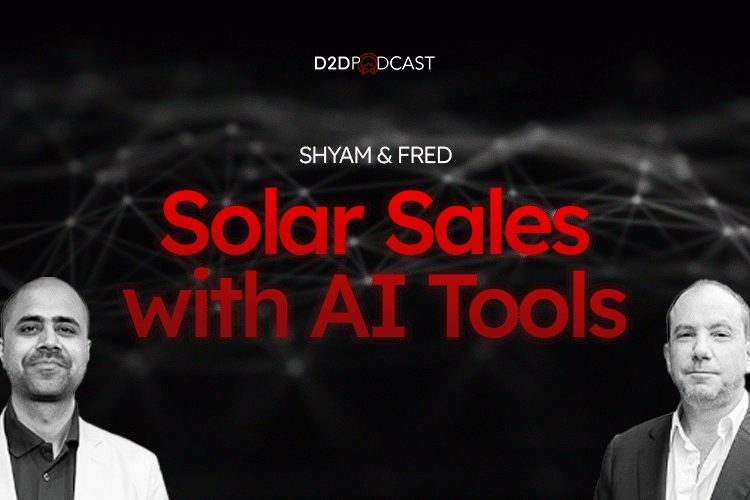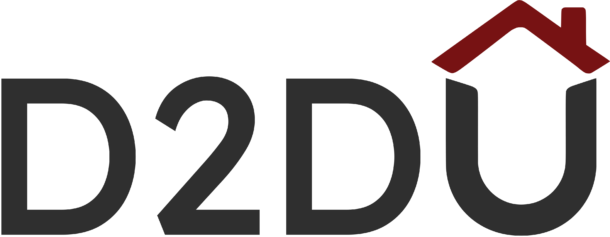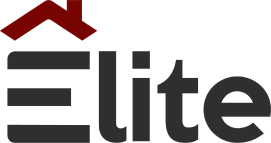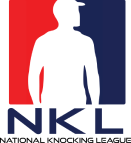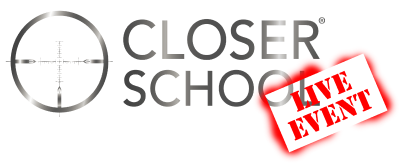Key Takeaways
- The latest episode of the D2D Experts Podcast, hosted by JP Arlie, features Fred, and Shyam from Reworked AI.
- Reworked AI's "Betty" can identify high-probability leads with a 93-94% accuracy rate, allowing sales teams to reduce door knocks by 20% & double conversion rates.
- AI tools are democratizing access to advanced AI technology for smaller businesses in direct sales and enabling them to compete with bigger players.
Table Of Content
- Understanding AI Tools in Door-to-Door Sales.
- Scoring Leads with AI: Getting the Best Results with Less Effort.
- Finding the Right Leads: How AI Helps You Target the Best Prospects.
- Real-World Success Stories with AI Tools
- Machine Learning: The Engine Behind AI Tools
- Challenges in Implementing AI Tools
- The Future of AI Tools in Door-to-Door Sales
Imagine reducing the number of doors your sales team needs to knock on by 20% while doubling your deal conversion rates. It may sound too good to be accurate. But, it’s a reality for companies using AI tools like Reworked AI’s “Betty,” which boasts a stunning 93-94% accuracy rate in predicting high-probability leads.
The latest episode of the D2D Experts Podcast, hosted by JP Arlie, Fred, and Shyam from Reworked AI, reveals how their cutting-edge machine learning algorithms are revolutionizing the door-to-door sales industry. Their company, Reworked AI, specializes in creating algorithms that help identify high-probability leads and optimize sales strategies for sectors like solar, roofing, and other home services.
Their AI-driven insights have enabled sales teams to identify the most promising prospects and optimize resources like never before. Don’t miss this episode to learn how to transform your sales strategy and achieve remarkable efficiency.
👈Watch the podcast for more insights, or keep reading for a detailed breakdown of how AI tools are set to transform door-to-door sales.
Understanding AI Tools in Door-to-Door Sales
AI Tools for Door-to-Door Sales: What are they?
AI tools for door-to-door sales use machine learning and data analysis to improve sales processes. These tools, like Reworked AI’s Betty, use advanced data analysis to process vast amounts of data—such as demographic information, property characteristics, and customer behaviors—to predict which leads will most likely convert into actual sales.
Betty is incredibly accurate—93-94% in real estate and over 90% in solar sales after some fine-tuning. This kind of precision means sales reps can spend more time on the leads that matter, making their efforts way more effective and saving time in the process.
For instance, instead of knocking on every door in a neighborhood, sales reps can use AI tools to identify the houses most likely to be interested in their products. This saves time and increases the chances of making a sale. Fred and Shyam’s company, Reworked AI, has developed tools specifically for industries like solar and roofing, where understanding specific property details is crucial.
Why AI Matters in Door-to-Door Sales
The traditional door-to-door sales approach can be time-consuming and inefficient. Sales reps often spend hours knocking on doors without knowing who might be interested in their products. AI tools change this by providing data-driven insights that help sales teams focus on high-probability leads.
These tools analyze various factors—such as the size and orientation of a roof for solar installations or the age of a home for roofing services—to identify which properties most likely need the offered service. This targeted approach not only increases the efficiency of sales teams but also significantly boosts conversion rates.
Scoring Leads with AI: Getting the Best Results with Less Effort
What is AI-Powered Lead Scoring?
AI-powered lead scoring helps sales teams determine which leads are worth their time.
Reworked AI’s Betty is a standout here, using up to 50 different factors—like the size of a roof or the homeowner’s behavior—to score each lead.
This means sales teams can focus on the leads most likely to close, which boosts efficiency and gets better results with less wasted effort.
Fred and Shyam explained that Reworked AI’s lead scoring system is particularly sophisticated.
It doesn’t just rely on one or two data points but uses a comprehensive set of criteria to evaluate each lead. This allows sales teams to prioritize their efforts on the leads most likely to result in a sale, thereby improving efficiency and increasing sales.
How Lead Scoring Works in Practice
In the podcast, Fred and Shyam shared examples of how lead scoring works in real-world scenarios. For example, in the solar industry, AI tools analyze factors such as roof size, orientation, and shading alongside demographic data to score leads. High-score properties are more likely to be interested in solar installations, allowing sales teams to focus on these high-probability leads.
This method has proven to be highly effective. By using AI-powered lead scoring, companies can reduce the number of doors their sales reps need to knock on while increasing the chances of closing a deal. This not only saves time but also enhances the overall productivity of the sales team.
Finding the Right Leads: How AI Helps You Target the Best Prospects
What is Targeted Lead Generation?
Targeted lead generation involves using AI tools to identify specific neighborhoods and properties most likely to require the services offered. Instead of casting a wide net, AI tools allow companies to narrow their focus to areas with the highest potential for sales.
This approach is particularly beneficial in industries like roofing and solar, where specific property characteristics significantly affect sales. By focusing on the right neighborhoods, sales teams can maximize their efficiency and increase their chances of success.
The Benefits of Targeted Lead Generation
During the podcast, Fred and Shyam discussed the numerous benefits of targeted lead generation. One key advantage is the ability to allocate resources more effectively. For example, a roofing company might use AI tools to identify neighborhoods with older homes more likely to need roofing services.
By targeting these areas, businesses can increase their chances of making sales while reducing wasted effort.
Another benefit is the ability to generate more qualified leads. AI tools can analyze a wide range of data points to identify prospects likely to need the service and have the financial means to afford it. This leads to higher-quality leads and, ultimately, more successful sales efforts.
Real-World Success Stories with AI Tools
AI in the Solar Industry
One of the most compelling examples shared during the podcast was using AI tools in the solar industry. A solar company struggling with low conversion rates decided to implement Reworked AI’s tools. The results were impressive: the company saw a significant increase in conversions by focusing on high-probability leads identified by the AI.
This success story highlights the power of AI tools in transforming sales processes. By using data-driven insights, the company was able to reduce the number of unproductive door knocks and increase the number of successful sales. This not only improved their bottom line but also enhanced the efficiency of their sales team.
AI in the Roofing Industry
The roofing industry has also seen significant benefits from using AI tools. During the podcast, Fred and Shyam shared a success story of a roofing company that used their AI tools to optimize its sales process. By analyzing data on roof characteristics, weather patterns, and demographic information, the company was able to identify the most promising neighborhoods for its services.
This targeted approach substantially improved sales efficiency. The company closed more deals with less effort, demonstrating the effectiveness of AI tools in the door-to-door sales industry.
Leverage the power of data to get the best results in direct sales
Transform Your Sales Strategy with D2D CRM

Machine Learning: The Engine Behind AI Tools
What is Machine Learning?
Machine learning is a subset of artificial intelligence that enables systems to learn from data and improve over time. It’s the engine behind the AI tools discussed in the podcast. Machine learning algorithms can accurately predict future outcomes by analyzing historical data and identifying patterns.
Machine learning helps analyze data on past sales, customer behavior, and property characteristics. This enables AI tools to accurately predict which leads are most likely to convert, allowing sales teams to focus on the most promising prospects.
The Continuous Improvement of AI Tools
One key advantage of machine learning is its continuous improvement as it processes more data. This means AI tools like those developed by Reworked AI become more accurate and effective over time. Each new piece of information the AI encounters helps it refine its predictions, ensuring that sales teams always work with the most up-to-date and accurate information.
Fred and Shyam emphasized that continuous improvement is one of the reasons AI tools are so powerful. As AI tools learn and evolve, they become even more effective at identifying high-probability leads, increasing sales teams’ efficiency and success rates.
Challenges in Implementing AI Tools
Data Quality and Privacy
Implementing AI tools can be challenging, like ensuring good data and figuring out how to integrate the new tech.
In addition to data quality, data privacy is a crucial consideration. Companies must comply with all relevant data protection regulations when using AI tools. This includes obtaining proper consent from individuals before collecting and using their data and implementing robust security measures to protect that data from unauthorized access.
But the benefits far outweigh the difficulties.
Reworked AI’s Betty is affordable, costing between $0.20 and $0.45 per line, depending on how much data you run. This means even smaller businesses can use Betty to streamline their sales processes and improve their results.
Integrating AI into Existing Sales Processes
Another challenge discussed during the podcast is integrating AI tools into existing sales processes. Many companies have established workflows and systems, and incorporating AI tools into these systems can require significant time and effort. However, as Fred and Shyam pointed out, the long-term benefits of AI integration—such as increased efficiency and higher conversion rates—far outweigh the initial challenges.
Companies willing to invest in AI can reap substantial rewards. By integrating AI tools into their sales processes, companies can streamline operations, reduce wasted effort, and achieve better results. This not only improves the sales team’s efficiency but also enhances the overall effectiveness of the sales strategy.
The Future of AI Tools in Door to Door Sales
Continued Innovation and Integration
As AI technology advances, its applications in door-to-door sales are expected to grow. Fred and Shyam are optimistic about the future, envisioning when AI tools will become integral to every sales team’s toolkit. They believe that as more companies adopt AI, the technology will become more sophisticated, enabling even greater efficiency and effectiveness in the sales process.
One area where they see significant potential is integrating AI tools with other technologies, such as customer relationship management (CRM) systems and canvassing apps. Combining the power of AI with these tools enables sales teams to gain even deeper insights into their prospects and further streamline their operations.
Leverage the power of data to get the best results in direct sales
Transform Your Sales Strategy with D2D CRM

Appointmentcratization of AI Technology
This democratization of AI technology will allow smaller companies to compete on a more level playing field.
Tools like Betty are constantly improving. With time, they have the potential to make door-to-door sales easier and more effective, helping companies achieve better results with less effort.
A digital marketing professional specializing in content-based functional areas - Ahsan Zafeer is driven by a never-ending passion for developing, nurturing, and strategizing key content aspects. He writes extensively on tech, digital marketing, SEO, cybersecurity, and emerging technologies. He is also a digital marketing strategist and freelance consultant for globally oriented organizations.

